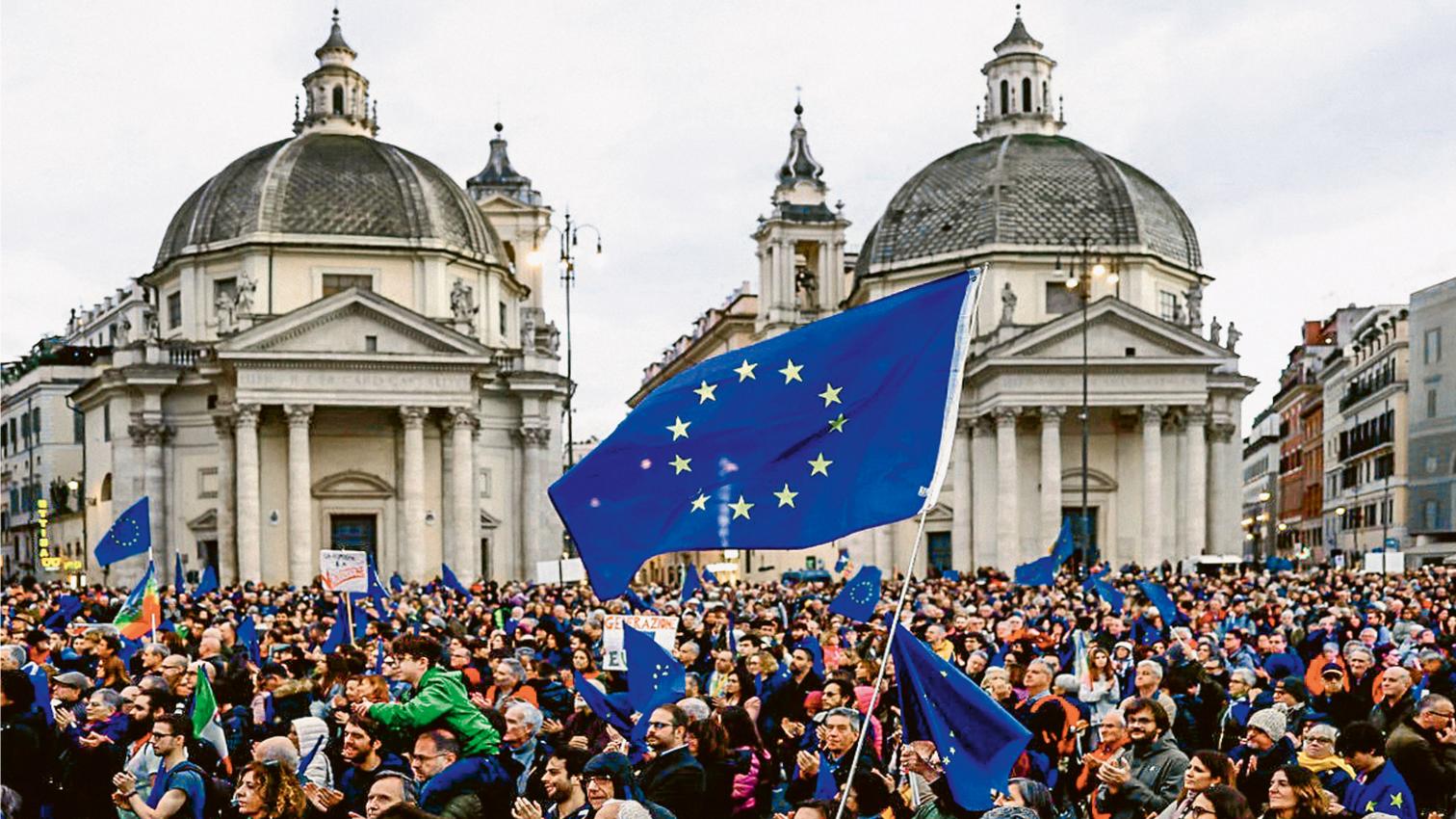
Bride next to Army tanks on Greece's Independence Day, March 25 © Louiza Vradi / Reuters
The war warning of European elites has feet of clay. Robert Kagan coined in 2003 a metaphor that stuck: “On major international questions today, Americans are from Mars and Europeans are from Venus.” This was the opening line of his Of Paradise and Power, a book of influence comparable to that of The End of History and the Last Man by Francis Fukuyama or The Clash of Civilizations by Samuel P. Huntington. Written by an American born in Athens, the book claimed that while the ones relied on the use of military power in a Hobbesian and anarchic world, the others pursued Kantian perpetual peace through norms reached in negotiations. This situation, he said, is not transitory but long-lasting, because it is based on the difference in power between them. But this has not always been the case, because when European powers were stronger, they revered martial glory, while the weaker Americans defended trade and international law.
The Europe of Venus prepares for war, but after eight decades of peace and with a prosperous and aged population, perhaps it is time to accept, with Antonio Scurati, that “we are no longer warriors.” From Homer to Ernst Jünger, Europeans saw heroic war as “the moment of truth where the forms of politics and the values of society are created,” but “the two-fold apocalypse of the world wars uprooted this age-old tradition.” The deep anthropological mutation brought by pacifism was a step forward in civilization worth being proud of, but the threats that loom over the European continent prompt a reassessment of security issues. The difficulties are many, because they affect the allocation of resources, but the essential element is the absence of a political unity able to structure the sense of belonging in a single social body, fractured today by the rise of nationalisms, enemies of this fragile utopia, the European Union.
Those demonstrating on 15 March at Piazza del Popolo exhibited the pride of being European, expressing a desire for continental unity and an adherence to the values of a common past that is also present in the text by José Manuel Sánchez Ron reproduced in this issue. Renzo Piano spoke at the event, describing Europe as “una grande città diffusa, che va dal Mediterraneo al Baltico, dalla Grecia al Portogallo,” but lacking “l’unità della Politica, ci manca la Polis.” Aware of our weakness, and of our dependence on the Atlantic connection, the Greek bride surrounded by tanks in the photograph illustrates well the current dilemma of Venus Europa, incapable of feeling the urge to go to war, but forced to pose between combat vehicles. Heinz Bude thinks we must confront the madness of today’s world with hope, but without optimism, and perhaps the author of Society of Fear is right. [+]

Demonstration in Rome © Cecilia Fabiano / LaPresse






